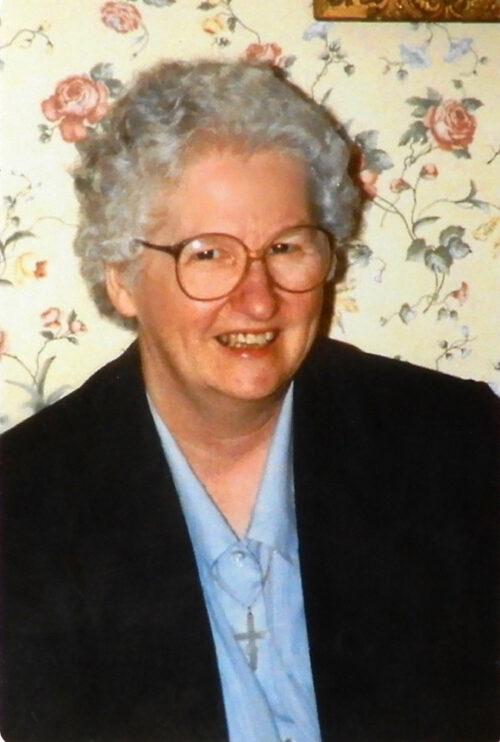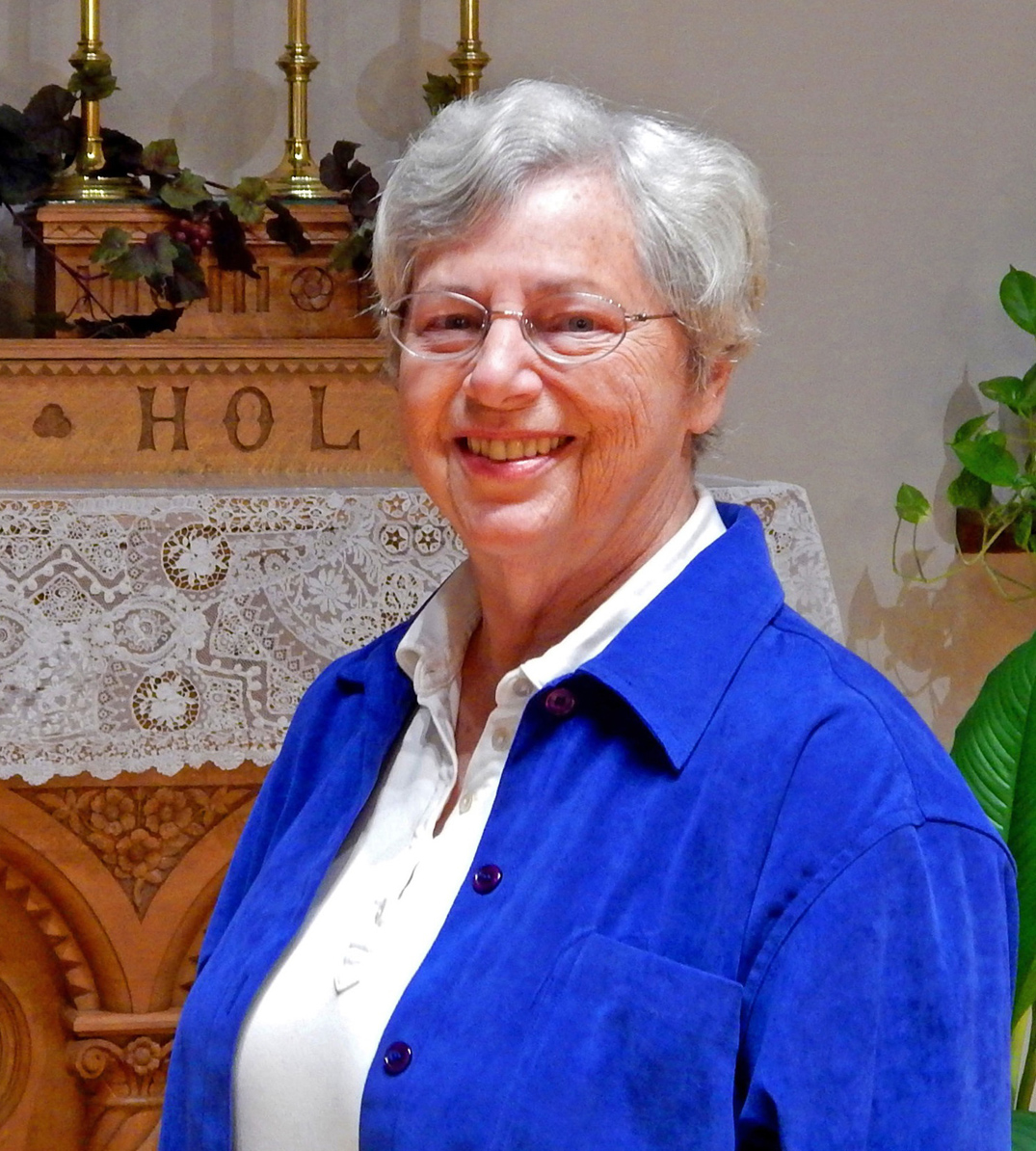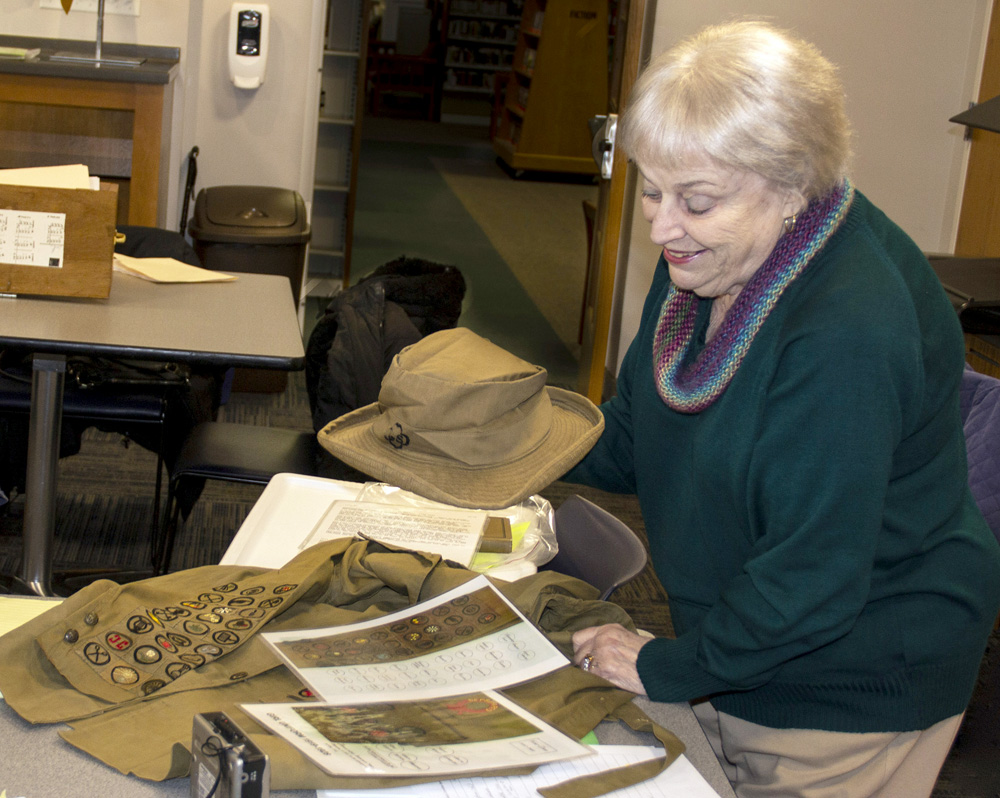Elderly nun’s DNA test leads to discovery of forgotten human rights crusader Exile McBride

by Mike McBride
I’ve always been fascinated with DNA. In the 1980s, this scientific breakthrough became a fantastic tool for law enforcement in cracking open old, unsolved, cold cases. However, this technology has greatly expanded in recent years, with DNA kits now available for researching family ancestries.
Since my immediate family was advancing in years, with some members already deceased, I made it a priority to begin studying our family’s genealogy through DNA.
I initially studied my mother’s side of the family, through obtaining her DNA. My research using her maiden name, Ann Foley, did not result in anything significant. I now wanted to study my dad’s McBride side, but he was already deceased, along with two other siblings. I only had one remaining opportunity with his elderly sister, who was still living.
My aunt, Lily McBride, a humble and caring nun, was in her nineties. As long as I can remember, Aunt Lily never missed sending me a Christmas and birthday card. She always signed with every card: “Love and Prayers, Aunt Lily.” As a member of the Sisters of St. Joseph, she was known as Sister Lily Ann and was living in their motherhouse infirmary in Rochester. If I was ever going to obtain her DNA, I knew that time was of the essence. Furthermore, I had no idea if Aunt Lily would even be interested in having her DNA tested.
Without delay, I called Aunt Lily to establish a good meeting time. She was very cordial and invited me to the motherhouse for lunch. When she asked me what I was up to, I tried to explain that I was researching the McBride family ancestry. Aunt Lily seemed quite interested, so I continued to explain that I would need a sample of her saliva. Having some difficulty hearing, she asked, “Michael, you need what?” I repeated that I needed a sample of her saliva in a vial to have her DNA analyzed. She was still not sure what I was talking about, so she raised her voice and, this time, asked, “You want my saliva and a vial?”
There were some other nuns nearby, quietly having lunch. They looked somewhat perplexed and concerned when they heard my Aunt Lily shouting about saliva. Perhaps they wondered if this might be some sort of medical emergency. Our conversation was quickly becoming very inappropriate at the lunch table. I wouldn’t dare now elaborate on how she would need to spit in an enclosed vial up to a specific line. I quickly changed the subject, and we continued to have lunch.
Knowing that Aunt Lily was my only remaining, immediate link on the McBride side of the family, I had to try again somehow. She remained very congenial but obviously confused, so I asked if we could meet in her room. After some additional explaining in the privacy of her room, she finally understood what I was trying to accomplish.
At last, Aunt Lily appeared ready, willing, and able to partake in the procedure. However, another problem soon arose. She could not produce enough saliva to reach the required vial line. At that point, I figured there was nothing more I could do; I had certainly tried. I would now mail in her DNA saliva sample, hoping for the best. I didn’t know if her abbreviated saliva sample would even be acceptable. Nor did I expect her results to lead to any important family discoveries.
Only a few months later, in 2018, Aunt Lily passed on to her eternal reward. She never lived long enough to learn what her DNA results would eventually accomplish. Little did I know how critical her sample would become in linking us to a significant DNA discovery. It almost seemed providential that I managed to obtain her DNA, with adequate saliva, just in time.
Because of Aunt Lily’s DNA results, I amazingly discovered that we had a great-uncle, named John Joseph “Exile” McBride. He had been a famous, international human rights crusader. Through extensive research, I have found over 1,800 old newspaper articles about him from four countries. He dedicated his entire life to campaigning for universal human rights, especially for independence in his homeland of Ireland. Exile struggled for over 45 years trying to help pass Irish Home Rule legislation, which would free Ireland from the tyrannical rule of the British Empire.
Exile fled Ireland in 1864, at only 17, after a failed rebellion against the ruling British government. If caught, he faced a severe sentence for committing the crime of high treason. He came to America, settling in Brockport, where he was later buried. An exile from Ireland, he was nicknamed Exile McBride. Around 1900, having spent considerable time in Buffalo, his nickname “Exile” had become a household name. I’ve discovered numerous old Buffalo headlines, which only used his nickname of Exile. Such headlines read: “Exile Goes to Washington,” “Exile Meets Roosevelt,” and “Exile Addresses Congress.”
Exile’s campaign for human rights won him the support of seven American presidents (Grant, Garfield, Arthur, Cleveland, Harrison, McKinley, and T. Roosevelt). He was especially close to President William McKinley and President Theodore Roosevelt. Exile even met with British Prime Minister William Gladstone on three occasions, lobbying for Irish independence. He built up a rapport with Gladstone and was invited to stay in the prime minister’s Hawarden Castle. All the while, Exile kept a secret; he was still a wanted British fugitive, and should have been serving time in a British prison!
I have collected hundreds of old newspaper articles and photographs of our famous great-uncle and compiled his amazing life story into a one-hour PowerPoint presentation. The incredible response has taken me to four cities, giving 25 presentations so far. A book on Exile’s life story is almost complete and will hopefully come out by the end of the year. I’ve also had exhibits showing the many discovered Exile McBride documents held at the Brockport Seymour Library, Buffalo’s Hyatt Regency Hotel, and the Buffalo Irish Festival.
Aunt Lily’s important link to Exile McBride!
With all this in mind, I received a call in August from Kevin O’Brien, a professional genealogist in Buffalo. Kevin helped me considerably with our family’s DNA research. He now wanted to know more about just who Lily McBride had been. Kevin noticed that she had no records of being married or having any children. However, Lily McBride’s DNA resulted in finding an ancestral pot of gold being directly tied to Exile McBride. I told Kevin that Lily McBride was my aunt and had been a Sister of St. Joseph, who died six years ago.
Aunt Lily’s DNA was the magic link that opened up major doors of our family’s genealogy. In fact, I learned that without my humble aunt’s DNA, there’s a very good chance we may not have discovered Exile McBride at all. Sister Lily Ann apparently had some Divine connections in Heaven and a little Luck of the Irish!




